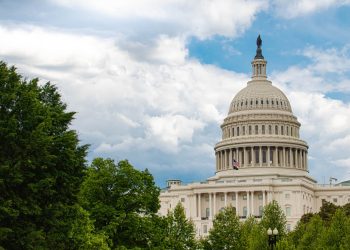WASHINGTON – With the national debt hurdling over $30 trillion—and America’s total foreign-owned national debt exceeding $7.7 trillion – U.S. Senator Joni Ernst, R-Iowa, is leading a new effort to limit the total amount of national debt owed to foreign governments, entities, and individuals. China currently owns nearly $1.07 trillion of U.S. national debt—which the Chinese Communist Party (CCP) uses the interest payments to fund forced labor camps in Xinjiang, the militarization of the South China Sea, and the Made in China 2025 plan that the CCP is using in an attempt to surpass the United States in key industries.
Ernst’s new bill, The National Debt is National Security Act, would require that not more than one-third of the cumulative national debt may be owned by foreign governments, entities, and individuals—and that not more than five percent of the cumulative national debt may be owned by the combined governments, entities, and individuals of a particular nation. U.S. Senators Bill Cassidy, R-La., and Mike Braun, R-Ind., cosponsored the bill.
“The United States should not owe over $1 trillion to adversaries like the Chinese Communist Party. Adversarial ownership over our national debt by foreign entities is not only harmful to our economy—it’s also a direct threat to our national security,” Ernst said. “Instead of emboldening our adversaries by allowing them to take advantage of our national debt, President Biden and Congress need to put an end to their out-of-control federal spending and protect our national security.”
“Allowing China and other adversaries to control large portions of our debt is a national security threat,” Cassidy added. “We need to rein in spending, and limit China’s leverage over the United States.”
“The foreign ownership of federal debt is particularly concerning in the hands of dangerous actors like the Chinese Communist Party. I’m proud to cosponsor The National Debt is National Security Act with Senator Ernst to limit the economic leverage of the CCP and preserve our economic and national security,” Braun said.
Last summer, Ernst helped introduce the Federal Debt Emergency Control Act to rein in Washington’s spending and provide a concrete path forward to tackle the nation’s debt crisis.
















